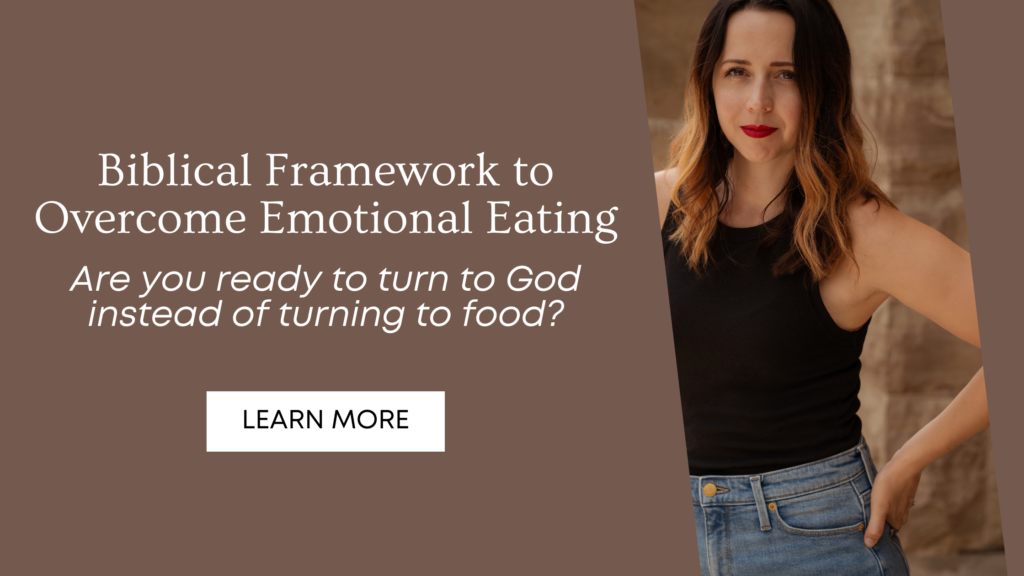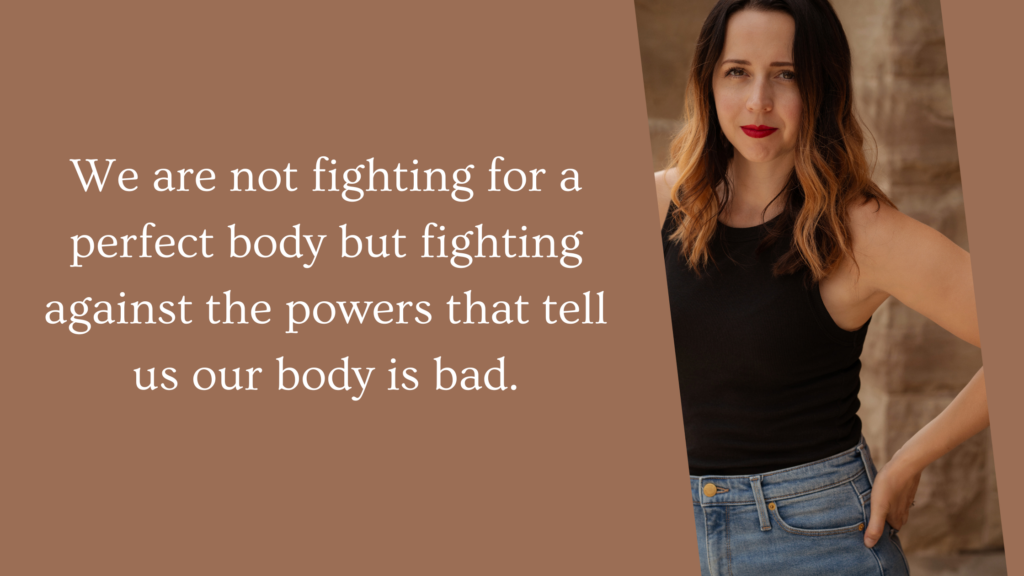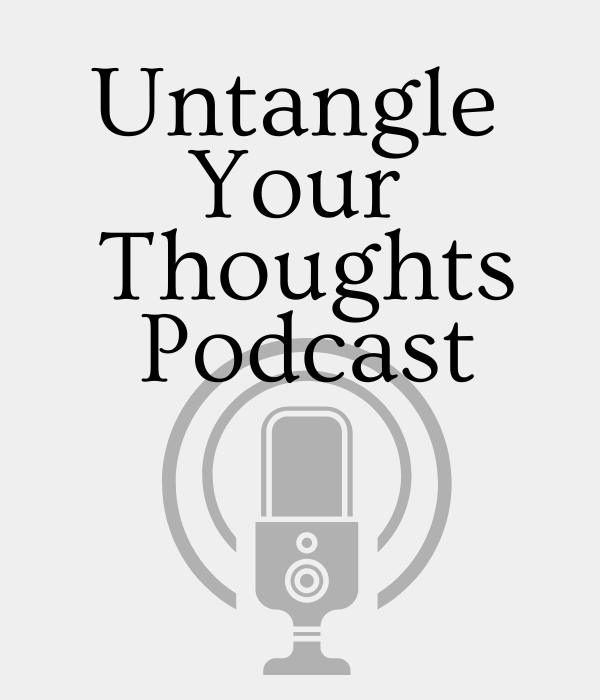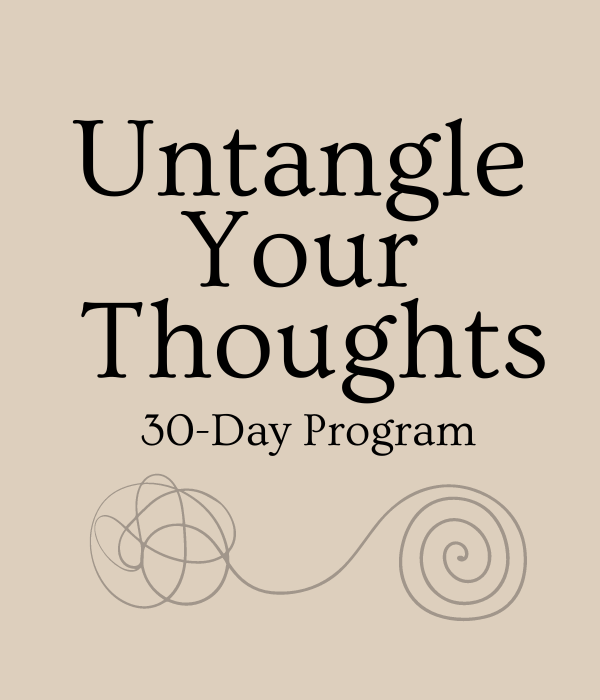Have you ever said, “I’m depressed about my weight but can’t stop eating?”
Emotionally eating is not bad in itself. We all have emotions and feelings and will celebrate with food or have a bad day and want to enjoy a nice treat.
However, when we are emotionally eating to fill a void, or it’s a constant way of coping for us, that’s when we need to address the underlying issues.
We can not solve emotional hunger with food.
This is why we can not ignore the other life stressors regarding weight loss.
This is why it’s more about calories in and calories out.
Also, this is why it’s more than finding the best workout and working out 5-6 days a week.
By the way, what if I told you your feelings aren’t inherently bad or sinful? You don’t need to fear or suppress them. They can be a guide. If you’re interested, I have a free 3-day study on living by faith while processing emotions. Check it out here!
Why Do You Keep Eating Your Feelings
Eating can be a way to temporarily silence or “stuff down” uncomfortable emotions, including anger, fear, sadness, anxiety, loneliness, resentment, and shame.
While you’re numbing yourself with food, you can avoid the difficult emotions you’d rather not feel. Boredom or feelings of emptiness.
If you are not used to expressing what you feel with others, with God, or have been afraid to, you will find some kind of outlet to express your feelings or needs. Even though temporarily a relief comes. It’s often followed by shame (you are bad) because the need wasn’t met, and the feelings wevren’t fully expressed.
Emotional eating isn’t bad unless it’s our only way of coping. When you feel depressed about your weight and can’t stop eating, there is more going on, and eating is often our way of coping.
The Difference Between Emotional Eating and Binge Eating
Emotional eating and binge eating are related but distinct behaviors. Both involve consuming food in response to emotions, but there are some key differences between the two:
Emotional eating: This refers to eating as a response to feelings such as stress, anxiety, depression, boredom, or sadness. People who engage in emotional eating may turn to food as a way to cope with difficult emotions or to soothe themselves. Emotional eating is often triggered by specific emotions and can be seen as a form of self-medication. The goal of emotional eating is usually to feel better in the moment, but it can lead to feelings of guilt or shame and contribute to weight gain over time.
Binge eating: Binge eating disorder (BED) is a recognized eating disorder characterized by recurrent episodes of eating large amounts of food in a short period of time (typically less than two hours), accompanied by a sense of loss of control. Unlike emotional eating, binge eating is not necessarily triggered by specific emotions. People with BED may eat in response to a variety of triggers, including stress, anxiety, boredom, or simply because food is available. Unlike emotional eating, binge eating is not a response to a specific feeling or event, but rather a pattern of behavior that is repeated over time.
In summary, emotional eating is a response to emotions, while binge eating disorder is a more serious, repetitive pattern of behavior that can have a significant impact on a person’s physical and mental health.
National Eating Disorder Hotline:
Looking to speak with someone about eating disorders concerns for yourself or a loved one? Please call our partner organizations’ Helplines:
- ANAD Helpline: 1 (888) 375-7767
Monday-Friday, 9am-9pm CT - National Alliance for Eating Disorders Helpline: 1 (866) 662-1235
Monday-Friday, 9am-7pm ET - Diabulimia Helpline: 1 (425) 985-3635
F.E.A.S.T provides support and education resources to parents and caregivers of loved ones impacted by eating disorders.
If you are in crisis, call or text Suicide and Crisis Lifeline: 988 [Spanish speaking services and for Deaf & Hard of Hearing] or text Crisis Text Line: “HOME” to 741-741. [Spanish speaking services]

So when we say, “I’m depressed about my weight but can’t stop eating,” remember your body is working as one.
It’s not just our emotions.
Knowing about the mind-body connection helps us understand specific emotions we have towards food and why we find ourselves emotionally eating.
Here are a few beliefs we carry about food when it comes to emotional eating:
- Food doesn’t talk back to you and tell you when you are right or wrong.
- Food just feels like it’s there for you.
- There is no threat to safety with food because it’s not talking back to you or manipulating you.
- It’s safe.
- It’s consistent.
- It doesn’t talk back.
- There is no opinion.
I just want to remind you that it’s not that you lack discipline or willpower. It’s that you need to build the bridge between what you know to believe what you know.
Learning to stop overeating also involves taking a deeper look at why we are overeating in the first place. \
Let’s change “I’m depressed about my weight but can’t stop eating” to “Why do I feel the need to continue to eat?”
Here are a few things for you to take into consideration as to why you could be overeating:
You are in front of your favorite foods. What do you have on hand that is easily accessible and in front of you all the time?
You eat a lot of salads. Salads are great to get in leafy green vegetables, but salads can also be low in calories and not energy-sustaining without a good source of carbs, proteins, and fats.
You are distracted. Our stomachs have ‘stretch receptors.’ When food hits our stomachs, the stretch receptors send a satiety signal to our brains, saying, ‘You’re full!’ This signal does not work if you eat while distracted. Studies have shown that you can easily take in hundreds of extra calories simply by not paying attention. (Like eating while watching a movie or snacking while talking on the phone.)
You are thirsty. The brain confuses thirst for hunger, and you wind up overeating when a glass of water would have helped define if you are truly hungry or not.
You are stressed. Stress elevates your cortisol levels into high gear, promoting hunger and overeating. Over a period of time, with elevated cortisol levels, you are at an increased risk for weight gain.
You didn’t sleep well the night before. Research has shown that missing even just a single night of sleep can mess with the way your appetite hormones work.
You are following a diet. When we follow a restrictive diet, we don’t listen to our internal hunger cues because we are trying to follow a plan versus trusting our bodies.
You are undereating. Maybe you undereat at breakfast and lunch and find yourself eating so much more at dinner. It’s not that you are “overeating.” Your body is hungry since you didn’t have many calories throughout the day.
Therefore, saying, “I’m depressed about my weight but can’t stop eating,” isn’t just about the willpower to stop eating.
Other things in our lives can be happening as well.
I share these to understand that overeating is not always about emotions. You can be tired, thirsty, undereating, overexercising, and not supporting your body with enough calories. All of which can cause you to overeat in a single meal.
Emotional eating can be a form of overeating, but not all overeating is because of emotions.
Therefore, some simple ways you begin to heal from overeating is:
- Don’t keep all of your favorite snacks out on the table or easily accessible in the pantry. Keep it out of the eyeline row.
- When you have salads, add protein, fats, and carbs to balance your energy levels until your next snack or meal.
- Eat with no distractions like screens or electronics.
- Carry water with your wherever you go. Make it easy for you to drink more water.
- Learn ways to manage stress instead of ignoring it.
- Prioritize sleep or even keep a sleep schedule so you can see when you are going to bed if you are waking up at night, and how many hours you are getting.
- Stop trying to find the next diet plan or way of eating that will be “the one.”
- Eat more calories during your meals throughout the day to keep you full to each meal.
Many women believe they overeat because they love food too much or have a sweet tooth. There can be truth to that, but it’s not the whole truth. God made us a three-part being. We are a spirit, have a soul, and live in a body, meaning every part of our bodies work together in unison. To think you overeat because you love food too much hinders us from seeing the whole picture and healing through it.
Do you agree that saying, “I’m depressed about my weight but can’t stop eating,” could be true but can also limit what God wants to do in you and through you?
Scriptures for Depression
Here are a few Bible verses that some people find helpful for dealing with depression:
- Psalm 34:18, “The Lord is close to the brokenhearted and saves those who are crushed in spirit.”
- Isaiah 41:10, “So do not fear, for I am with you; do not be dismayed, for I am your God. I will strengthen you and help you; I will uphold you with my righteous right hand.”
- Matthew 11:28-30, “Come to me, all you who are weary and burdened, and I will give you rest. Take my yoke upon you and learn from me, for I am gentle and humble in heart, and you will find rest for your souls. For my yoke is easy and my burden is light.”
- John 14:27, “Peace I leave with you; my peace I give you. I do not give to you as the world gives. Do not let your hearts be troubled and do not be afraid.”
- Philippians 4:6-7, “Do not be anxious about anything, but in every situation, by prayer and petition, with thanksgiving, present your requests to God. And the peace of God, which transcends all understanding, will guard your hearts and your minds in Christ Jesus.”
Remember that God is always there for you, and that he loves you deeply. These verses can be a source of comfort and encouragement, but it’s also important to seek help from a trusted friend, family member, or medical professional if you’re struggling with depression. Don’t do this alone, especially if you feel you keep finding yourself depressed about your weight and eating.

3 Biblical Truths to Feel Comfortable in Your Body
Let’s explore the truths about feeling comfortable in your body and work towards breaking free from the cycle of feeling depressed about your weight while struggling to control your eating habits. First, it’s crucial to approach this journey with self-compassion. Understand that change takes time, and it’s okay to seek support.
1. Look at the fall with Adam and Eve.
They were exposed, and they got a new set of eyes. They didn’t know they were naked until she ate the apple, and Adam ate the apple. They hid in shame. There’s an attack and fight against your body because of the fall. Now God dwells inside of you, the temple, which is your body. There are going to be attacks. There will be thoughts coming in from the enemy that make us unhappy with our bodies.
Sometimes we need to remember we are not fighting for the perfect body but fighting against the powers that tell us our body is bad.
2. Stop comparing our bodies.
Our unhappiness with our bodies comes from comparing. This is really just a distorted view of a good body versus a bad body. 2 Corinthians 10:12 says, “We do not dare to classify or compare ourselves with someone who commends themselves. When they measure themselves by themselves and compare themselves with themselves, they are not wise.” I love the second sentence in this scripture, “When they measure themselves by themselves and compare themselves with themselves, they are not wise.” When we compare, we become not wise. There’s a different translation that calls us fools.
It’s not to shame us or put us in a corner. It’s the reality that comparison is not healthy for our hearts. We talk about it often when we think of body image because we’re comparing what a good body is versus a bad body.
3. Know your body isn’t a machine to produce results.
We believe that effort should equal our results. Whatever you eat or don’t eat, whatever workout you do, whatever workout you don’t do – you go into this performance-based view. I want my effort to equal my results. When it doesn’t, you become unhappy with your body, frustrated with your body, and almost make it the enemy.
Being comfortable in your body starts with the foundation of being kind to the body the Lord has blessed you with and learning to properly steward it well. Feeling depressed about your weight and eating habits doesn’t have to be something you struggle with all the time.
5 Questions for Building a Positive Body Image and Boosting Self-Esteem
- Are you worshipping your body or the One who made your body?
2. Why do you think you desire to love your body? Where does this idea come from? What do you think it will solve?
3. Is there an end? Do you get to a place where it’s not about your body but what you and your body do with Christ?
4. Many women are searching to find the answers to love their bodies – but is it an illusion or distraction?
5. What does loving your body mean and look like in everyday life?
To learn more about how to overcome emotional eating, get my course Biblical Framework to Overcome Emotional Eating.
Breaking Free from Feeling Depressed About Your Weight and with Emotional Eating
One is that we try to approach our pain with what I call toxic positivity or blind optimism. This is where we don’t even name the pain or specifically name what hurts. However, we expect what is good in life to cancel what is hard. It doesn’t tolerate pain and joy sitting together in the same room.
On the other extreme, we take our painful emotional experiences and treat our feelings like they are the most real part of us. As my friend Nicole likes to say, “There’s a difference between feelings being real and feelings being true.”
We get to choose how we steward our pain and the kinds of things that we gently say to our pain. Sometimes we need to slow down and learn how to rest.
Since we can not solve emotional hunger with food, naming your pain is one of the first steps to begin breaking free from emotional eating. Unless you know what pain you’re speaking to, you can’t speak the truth to it. So a common mistake we make is that we tend to speak in the language of identity a lot more than we speak in terms of our circumstances. If you are feeling powerless, helpless, or disempowered to change how you feel and interact with your life, the common mistake is to say: I’m loved.
As people, we have inherent value. But if the pain that we or somebody else is feeling is disempowered, helpless, or out of control, it’s not going to speak to the heart of that emotional experience. So you have to specifically name either: How do I feel about myself? Or how do I feel about my circumstances? In order to be able to speak the truth we need to actually address the pain. I would say that is the first practical step to breaking free from emotional eating.
Together, we can change and heal from saying, “I’m depressed about my weight but can’t stop eating.”






Thank you
You are welcome!
Amen such a nice blog!
Thanks for reading!